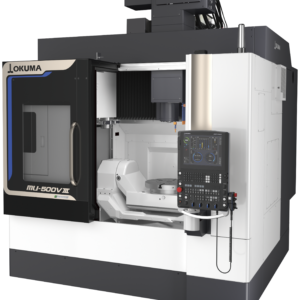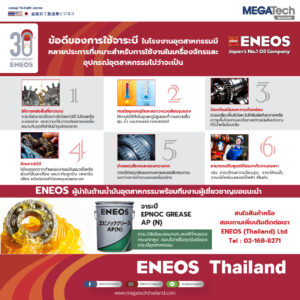ระบบ Internet of Things (IoT) ประกอบด้วยเซ็นเซอร์และอุปกรณ์ที่ “พูดคุย” และเชื่อมต่อกับเทคโนโลยีคลาวด์ เมื่อข้อมูลเข้าถึงระบบคลาวด์แล้ว ซอฟต์แวร์ IoT ไม่เพียงมีประโยชน์ต่อธุรกิจและอุตสาหกรรมนับไม่ถ้วนเท่านั้น ตั้งแต่การเกษตรไปจนถึงการค้าปลีกและการแพทย์ แต่ยังรวมถึงต่อผู้บริโภคปลายทางอีกด้วย

คาดว่าทั่วโลกจะมีจำนวนอุปกรณ์ IoT มากกว่า 75 พันล้านเครื่องภายในปี 2025 ซึ่งมากกว่าในปี 2015 ถึง 5 เท่า จากการศึกษาของ McKinsey พบว่าภาคธุรกิจที่ใช้ IoT เพิ่มขึ้นจาก 13% เป็น 25% ระหว่างปี 2014 ถึง 2019

นอกจากนี้ ประเทศไทยยังได้ทุ่มเทพยายามย่างมากในการพัฒนาโครงสร้างพื้นฐาน IoT และโครงการ Thailand 4.0 ของภาครัฐหลายโครงการ (เช่น Smart City และ Industry 4,0) ได้มุ่งเน้นส่งเสริมการนำ IoT มาใช้
ประเทศไทยจะเป็นประเทศแรกในเอเชียตะวันออกเฉียงใต้ที่ใช้และให้บริการ 5G เดินหน้าสู่การเป็น “ศูนย์กลางดิจิทัล” ผู้ให้บริการโทรคมนาคมรายใหญ่หลายรายของไทยได้ลงทุนรวมกันซึ่งเป็นจำนวนกว่า 3.2 พันล้านดอลลาร์ในการประมูลคลื่นความถี่ 5G ของประเทศ อุบัติการของเทคโนโลยีดังกล่าวนี้ช่วยขับเคลื่อนให้เกิดความจำเป็นและการ IoT มาปรับใช้

รายงานจาก Gartner ระบุว่ามีอุปกรณ์เชื่อมต่อถึง 20.4 พันล้านเครื่องในโลกในปี 2020 จำนวนนี้จะเพิ่มขึ้นอย่างต่อเนื่องอย่างแน่นอน แต่ว่าโครงสร้างพื้นฐานไร้สายในปัจจุบันไม่มีความสามารถในการรองรับอุปกรณ์จำนวนมาก จึงไม่สามารถรับประกันความเร็วในการแลกเปลี่ยนข้อมูลโดย ซึ่ง IoT สามารถตอบโจทย์ดังกล่าวนี้ได้ ประเทศไทยยังคงเดินหน้าสู่เทคโนโลยีไร้สาย 5G ด้วยคำมั่นสัญญาว่าจะมีระบบนิเวศที่เป็นมิตรต่อ IoT มากขึ้น

ปัจจุบันพบว่าธุรกิจที่นำ IoT มาใช้ในประเทศไทยหลักๆ คือ ธุรกิจการผลิต โลจิสติกส์ และการขนส่ง อย่างไรก็ตามพบว่าเริ่มพบการใช้ IoT มากขึ้นในธุรกิจพลังงาน (บริษัทน้ำมันและก๊าซ ปตท. ใช้ IoT ในความงานปลอดภัยทางท่อ) และในธุรกิจอสังหาริมทรัพย์ (งานอาคารอัจฉริยะ) เป็นต้น


คาดการณ์ว่าตลาด IoT ในประเทศไทยจะเติบโดยได้รับแรงหนุนธุรกิจเครื่องใช้ผู้บริโภคที่เกี่ยวข้องกับ IoT และจะเพิ่มขึ้นถึง 2.19 พันล้านดอลลาร์ภายในปี 2030 คณะกรรมการส่งเสริมการลงทุนของไทยตั้งใจที่จะพลักดันการปฏิวัติ IoT อย่างมาก จึงได้สร้างสิ่งจูงใจในการลงทุนเพื่อสนับสนุน ส่งเสริม และยกเว้นภาระทางภาษีให้กับธุรกิจที่พัฒนาหรือปรับใช้ IoT และเทคโนโลยีดิจิทัลที่เกี่ยวข้อง อย่างไรก็ยังพบอุปสรรคในระบบราชการ ซึ่งก็ต้องยอมรับว่าระบบราชการนี้อาจขัดขวางความก้าวหน้าของประเทศไทย

Article by: Asst. Prof. Suwan Juntiwasarakij, Ph.D., Senior Editor












